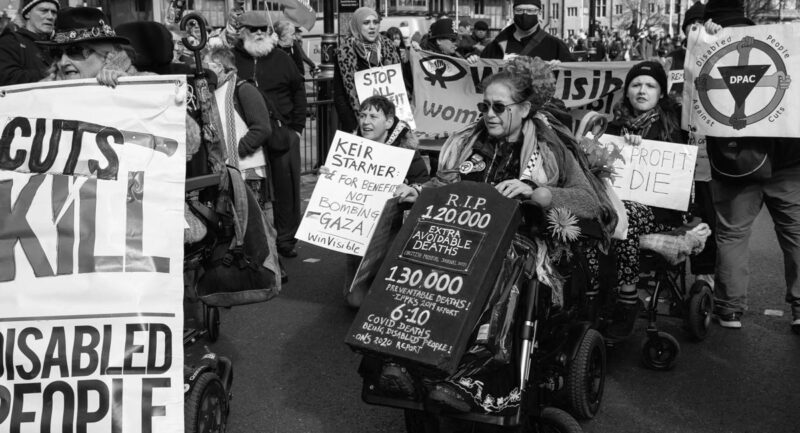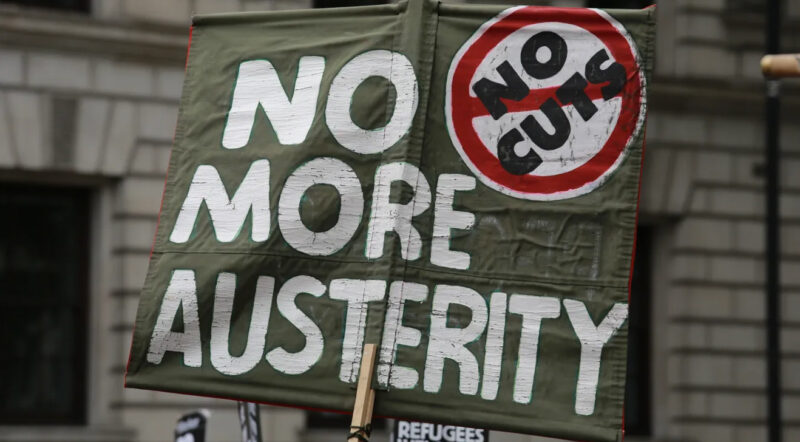Pensions conference: left leaders timid in face of right wing betrayal
 PCS Left Unity, the leading faction in the civil service union, opened its doors to activists from all unions to debate the way forward, ahead of a pivotal week in the pensions dispute. But PCS leader Mark Serwotka and the influential Socialist Party promised further action but refused to name a date for the next strike. Jeremy Dewar reports
PCS Left Unity, the leading faction in the civil service union, opened its doors to activists from all unions to debate the way forward, ahead of a pivotal week in the pensions dispute. But PCS leader Mark Serwotka and the influential Socialist Party promised further action but refused to name a date for the next strike. Jeremy Dewar reports
Up to 400 activists attended the hastily called emergency conference to discuss the pending pensions sell-out, despite the wintery weather. They were motivated by real anger at the words and actions of public sector union leaders over the last three weeks.
Despite the hugely successful one day strike on 30 November, which saw two million walk out, shutting down schools, council depots and Job Centres, union leaders appeared to be falling over themselves to sign up to the “heads of agreement” offer from the government and rule out further strikes just before Christmas.
As speaker after speaker told the conference, this would mean accepting a deal to “pay more, work longer, get less” – precisely what we had struck against. As Mark Serwotka sarcastically pointed out, “I don’t remember anyone saying in November we were going to the barricades over accrual rates.” NUT executive Kevin Courtney likened the offer to “having £10 stolen from you and £1.50 given back”.
The good news is that, since 19 December, some of the unions have decided not to sign up to the deal. The PCS, NIPSA, NUT and NASUWT have all declared their dispute is still on. The UCU will meet on Friday and is widely expected to reject the Coalition offer outright on Friday. Most importantly of all, Unite’s lay executives for the NHS and local authorities have now met (the latter only on Monday) and voted against the deal. The Tories’ blatant plan to isolate the PCS has failed dramatically.
All eyes are now on Unison’s Service Group Executive meetings and the TUC Public Sector Liaison Committee, which meets on Thursday. Lobbies have been called, emergency motions passed and petitions circulated to pile pressure on executive members to reject the deal, keep the dispute going and announce further action.
Naming the day
Serwotka finished his opening remarks, however, with a word of caution: “This may not be popular but it’s not right for me and Janice [Godrich – PCS Chair and SP member] to announce we will call further strike action without knowing what the other unions are prepared to do.”
This visibly disappointed a large section of the audience. To be fair, Serwotka, Courtney and others did say that, even if Unison and the TUC did capitulate, a “coalition of the willing” unions should name a strike date as soon as possible – and that this should take place before half term, i.e. in late January or early next month. John McDonnell even offered to mobilise the Trade Union Coordinating Group, a semi-official coalition of left of centre union leaders and LRC MPs.
But a number activists wanted a clearer lead. And why not? After all, this was a PCS Left Unity conference – why should it tailor its demands to what is acceptable to the leaders? On the contrary, any rank and file conference worth its salt should express the needs of the members for a clear way forward and disdain from gentlemanly diplomacy.
It was encouraging therefore that this dispute did lead to a dramatic challenge to the chair (who was ironically Janice Godrich, but perhaps that tells us something about Left Unity and its relationship to the union bureaucracy).
Despite Godrich ruling out of order all other motions and all amendments to a prepared Left Unity statement, leading SWP member Paul McGarr proposed an amendment to the from the floor, calling on the PCS to “name the day” for the next strike. So when Godrich accepted an uncontentious amendment from the United Left in Unite, Dave Esterson from Permanent Revolution and Candy Udwin, also in the SWP, demanded to know why some changes were allowed and others not.
Clearly the Stalinist leaders of the United Left share the SP’s “hands off” approach to the TUC lefts, so their changes were accepted without so much as a vote, while any policy which threatened to shake up this cosy relationship was deemed “out of order”. It will now be interesting to see whether the SWP continue their new-found love for rank and file democracy in next week’s conference called by Unite the Resistance. Workers Power will certainly try and test the water by sending in our resolution, if possible in collaboration with others.
Escalate the action – without the officials if necessary
In fact we did exactly that in the run-up to this conference, but were told there was not time to debate resolutions (read our motion here). But even though we could not formally propose the motion, we were able to speak to it.
Rebecca Allan, PCS member from Yorkshire & Humberside, said we needed to “organise among the grassroots for unofficial action in those unions that have sold out” and called on all the left forces in the unions – NSSN, Unite the Resistance and CoR to “unite their campaigns through a rank and file conference to hammer out a plan of action”.
When I got to speak, I called for an escalation of the action because “one day strikes allow the government to play divide and rule and the union bureaucrats to engineer sell-outs” while indefinite strikes “put the rank and file in the driving seat”. I also called for joint strike committees to cement the unite front from below and the formation of a rank and file movement, like the electricians hade started to forge on the building sites.
In a further sign that the SWP may be tacking to the left, Mark Campbell, UCU Left candidate for General Secretary, made some similar points: “If we put picket lines on those workplaces with members in there whose unions have surrendered, they will come out.” Not only should the fighting union fight on, he said, but “if necessary go over the heads of other union leaders” and call on their members to take action alongside them.
Absolutely right! But why did the Unite the Resistance conference held on 19 November fail to foresee that TUC leader Brendan Barber and Unison chief Dave Prentis would pull the brake after N30? Why did the SWP leaders refuse to debate our motion at that conference, which did warn of the coming sell-out?
The main task now is pull out all the stops to ensure that Unison’s service group executives and the TUC’s public sector liaison committee are not able to sell out our dispute this week. But whether we succeed or fail in that task, we clearly cannot rely on Barber, Prentis and co. to lead the struggle to victory. So next week’s conference has to debate resolutions and amendments, has to call for unity with the NSSN and CoR, and has to hammer out a plan to defend our pensions through militant strike action – with or without the union leaders.
Lobby the TUC
Thursday 12 January, 2pm
Congress House, Great Russell Street
London WC1B 3LS
(nearest underground station Tottenham Court Road)
Unite the Resistance emergency national meeting
Saturday 14 January, 12 noon – 4pm
Friends Meeting House (opposite Euston station)






